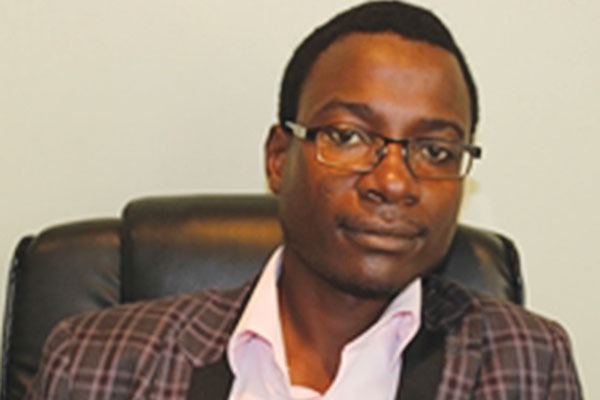
guest column:Mukasiri Sibanda
GIANT strides, in the past decade, have been made by Publish What You Pay (PWYP) campaign to improve the extractive sector transparency landscape the world over. The results are quite telling. Fifty-one countries are now implementing the Extractive Industries Transparency Initiative (EITI) – a global best practice on promoting open and accountable management of the extractive sector. In addition to EITI, Canada, EU and Norway now have mandatory disclosure rules which compel extractive companies listed in their jurisdictions to disclose payments made to local, regional and national governments per project, per country. With all this progress, focus is shifting to how citizens and civil society are making use of disclosed information to improve development, fight inequality and strengthen accountability.
To confront this conundrum or challenge, the Zimbabwe Environmental Law Association (Zela), Gwanda Residents Association (GRA) and PWYP Canada are currently working on a joint study, assessing the impact of Caledonia’s Extractive Sector Transparency Measures Act (ESTMA) reports in Gwanda district, Matabeleland South province of Zimbabwe. The focus of this article is to share preliminary findings from the field study which was conducted in Gwanda from January 22 to 26.
One of the main challenges when collecting and analysing data from communities on development issues is to ensure community ownership and buy-in of the whole process. A challenge we tried to mitigate by deliberately working together with community-based organisations to conduct key informant interviews (KIIs), focus group discussions (FGDs) and to assess emerging patterns from the collected data. We worked with Gwanda Residents Association, Gwanda Economic Justice Network Community Trust (GEJNCT), and Gwanda Youth in Mining. With GRA, we went a step further and we are working together on compilation of research. The benefits are mutual. Working with community-based organisations (CBOs) enabled us to have a more nuanced understanding of the local context, to leverage existing relationships to strengthen participation and to overcome the language barrier risks. Working with the CBOs on this study was also a mechanism to do on the job training for research skills. Before we started the data collection, we spent a half day going through the conceptual framework for the research to check for blind spots together with CBOs.
Gwanda not benefiting To try and loosen up the conversation on assessing the impact of Caledonia Mining Corporation’s ESTMA reports, we sought to find out the general perception of residents on their take concerning mining contribution to local development. Generally, most people interviewed were clear that Gwanda is not benefiting from mining activities. There was wide acknowledgement that Gwanda Community Share Ownership Trust (GCSOT) has made noticeable strides to improve health and education services, an achievement made during the first years of its operations.
Communities now barely see the contribution of GCSOT on improving local service delivery. The GCSOT administrator concurred with the observations, and further explained “GCSOT has shifted its focus on local social service provision to support income-generating projects to address sustainability concerns. We have not abandoned altogether the thrust to improve service delivery.” While most interviewed people in Gwanda rural lamented little benefits from mining activities, they acknowledged GCSOT’s tangible contribution to local service provision – health, education and water infrastructure. A striking observation is that few people interviewed outside Gwanda knew that interventions made by the GCSOT were funded through dividends from the mining companies.
The opposite is true for residents in Gwanda town. They are clear that mining companies, Caledonia’s Blanket Mine particularly financed the operations of GCSOT. Residents of Gwanda town are not happy that they are directly affected by the impact of mining activities due to their proximity to the town, yet they are excluded from the benefits of the GCSOT which is focused on rural development.
Upon seeing the payments made by Blanket Mine to Gwanda Rural District Council (RDC), a female artisanal and small-scale miner (ASMer) remarked “we ASMers are not encouraged to pay taxes to Gwanda RDC as communities are not seeing any development from what is contributed by large-scale miners.” This clearly demonstrates the far-reaching consequences of how a lack of transparency and accountability in the management and utilisation of mineral revenue can impact on domestic resource mobilisation buy-in.
- Chamisa under fire over US$120K donation
- Mavhunga puts DeMbare into Chibuku quarterfinals
- Pension funds bet on Cabora Bassa oilfields
- Councils defy govt fire tender directive
Keep Reading
Transparency matters Virtually all respondents solidly agreed that transparency in the mining sector was crucial. Several respondents were clear that transparency matters to them because the gold being mined was owned by the communities and they wanted to know the details of how much gold was extracted, value realised, royalties, taxes and levies paid, what was received by various government institutions and how the mining revenue was spent since it impacts not only this generation but future generations.
Only a few demanded to know the terms and conditions for the mining agreements so that they could check if the deals were well negotiated to deliver on local development and for monitoring purposes as well. There was limited reference though to the Constitution. Only one respondent revealed that access to information was guaranteed under section 62 of the Constitution, therefore, public access to information on mining was their right. There was no reference to other constitutional provisions like section 298 (1) on principles of public financial management which calls for transparency and accountability in all public financial matters.











